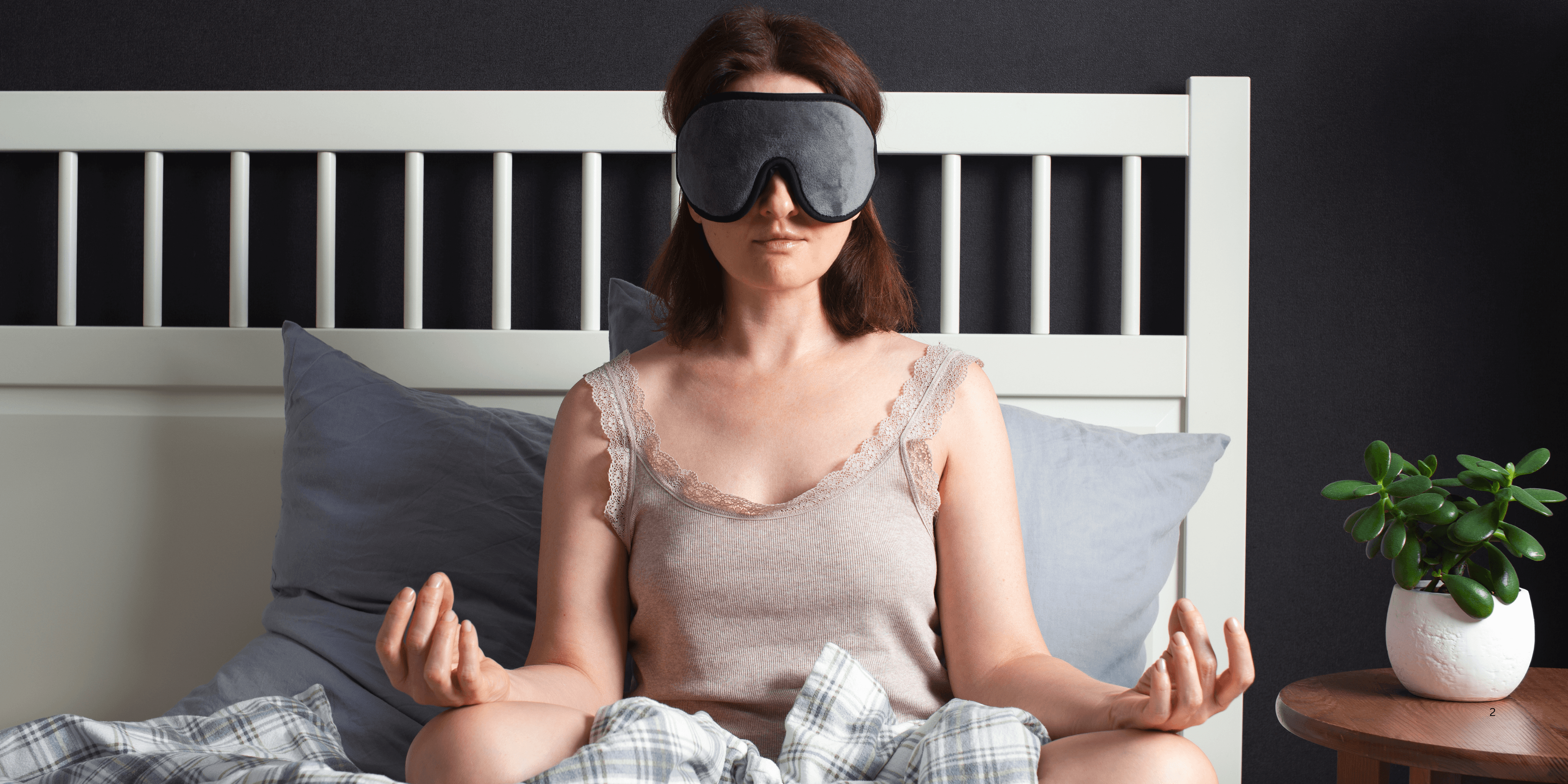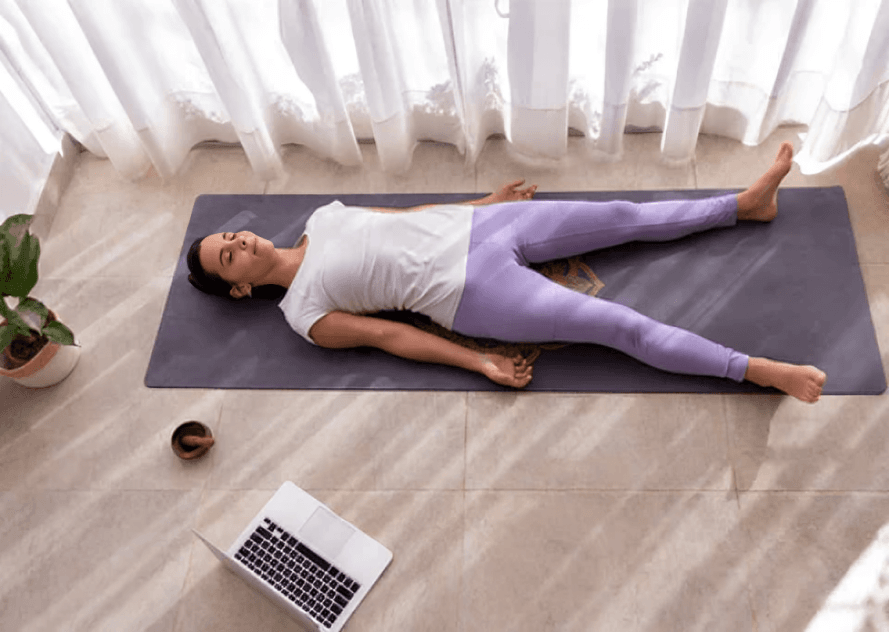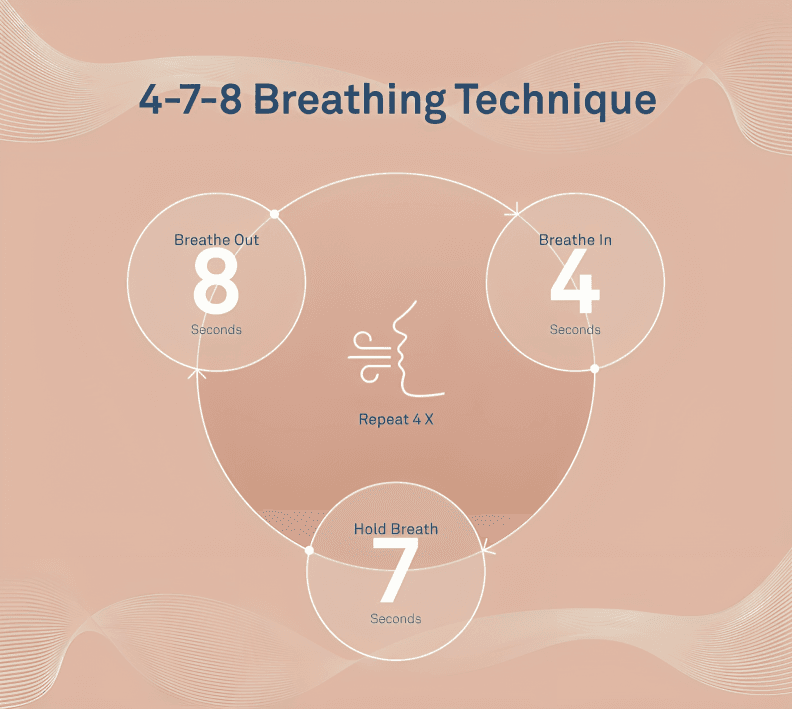
“
Effective meditation for sleep can be a game-changer in overcoming sleepless nights. This natural method helps quiet your mind, promoting relaxation and improving sleep quality. Explore techniques that will guide you toward better rest and tranquility.1
1
”
Deep breathing techniques, like diaphragmatic breathing, promote relaxation by lowering heart rate and calming the nervous system, helping the body transition into a restful sleep state. 1
Progressive muscle relaxation, where you tense and relax muscle groups progressively, alleviates stress and physical tension, making it easier to fall asleep and improve sleep quality. 2
Guided meditation using soothing voices or calming music helps focus your mind away from stress, facilitating mental relaxation and promoting deep, restorative sleep. 3

Yoga Nidra, or "yogic sleep," is a deep relaxation technique that induces a state between wakefulness and sleep, offering profound rest without actually sleeping, helping improve overall sleep patterns.
Aromatherapy combined with meditation, such as using lavender essential oil during a breathing meditation, has been shown to reduce anxiety, enhance relaxation, and contribute to more restful sleep. 4
Visualization techniques, where you imagine a peaceful setting or a calming experience, help reduce mental chatter and anxiety, creating a mental environment conducive to falling asleep quickly. 5
Body scan meditation involves mentally scanning your body from head to toe, releasing tension, and allowing each muscle group to relax fully, enhancing comfort and ease for sleep. 6
Loving-kindness meditation, which focuses on sending positive thoughts to yourself and others, reduces negative emotions and stress, fostering a peaceful mind conducive to good sleep. 7
Sound meditation, like listening to binaural beats or white noise, promotes sleep by synchronizing brain waves, reducing stress, and inducing a relaxed mental state ideal for falling asleep. 8

The 4-7-8 breathing method, which involves inhaling for 4 seconds, holding for 7, and exhaling for 8, slows down the body’s stress response and induces a calm, peaceful state perfect for sleep.
Mantra meditation, where a repetitive phrase or word is chanted silently or aloud, focuses the mind and calms the nervous system, making it easier to relax and drift off to sleep. 9
Tai Chi, a gentle form of exercise combined with deep breathing, helps reduce tension and promotes physical and mental relaxation, aiding in falling asleep faster and improving sleep quality. 10
Biofeedback meditation involves learning to control physiological functions like heart rate and muscle tension, allowing individuals to reach a deeply relaxed state, preparing the body for restful sleep. 11
The practice of self-hypnosis can retrain the subconscious to adopt healthier sleep patterns by encouraging relaxation and reducing stress, leading to improved sleep quality and duration. 12
Chanting or humming can calm the mind and body, acting as a form of meditation that helps to reduce anxiety and create the peaceful mental state necessary for a good night’s rest. 13
Breathing exercises like box breathing, involving a four-step pattern of inhale-hold-exhale-hold, help reset the body’s stress response, lowering anxiety and facilitating a peaceful transition into sleep. 14

Autogenic training, a form of self-hypnosis where you mentally affirm sensations like warmth and heaviness, induces a state of relaxation that can ease the body into restful, rejuvenating sleep.
Gratitude meditation, where you reflect on positive aspects of life, reduces worry and stress, fostering emotional well-being and creating a mental environment favorable for deep, uninterrupted sleep. 15
Grounding techniques, like focusing on sensations in the body or feeling the earth beneath your feet, help to calm the nervous system, making it easier to shift into a sleep-ready state. 16
Ecotherapy, or nature-based meditation, involves visualizing peaceful natural environments like forests or beaches, which promotes a sense of calm and connection, encouraging mental relaxation ideal for sleep. 17


